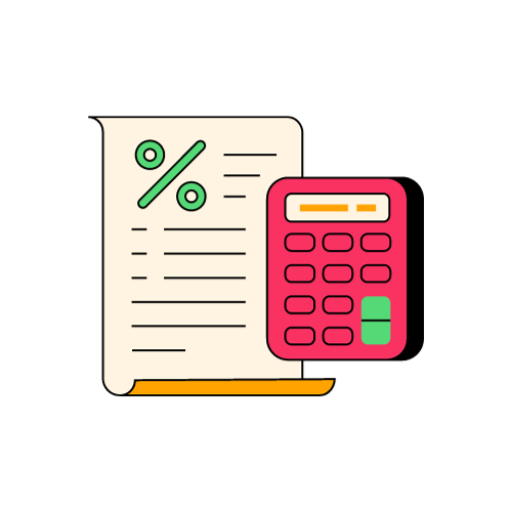Bookkeeping-AI-Powered Bookkeeping Assistance
Effortless Bookkeeping with AI Precision
How do I maintain financial records?
Can you explain double-entry bookkeeping?
What are common bookkeeping challenges?
Explain the importance of financial statements.
Related Tools
Load More
Accounting GPT
Your accounting expert.
Accounting
Aid in university-level accounting with explanations and problem-solving guidance.

Invoice & Receipt Organizer
Invoice & Receipt Organizer streamlines the process of extracting and organizing data from invoices. Provide a link to your Google Sheet with editing permissions enabled, and upload your invoice in PDF, JPG, or PNG format. The system will efficiently aggr

Receipt Assistant
Your efficient receipt processing buddy

Accountant GPT
Your Financial Partner. Expertise in Record Keeping, Budgeting, Tax Prep, Analysis, Payroll, and Investment. Smarter Financial Management Made Easy.

Financial Accounting GPT
Expert in Financial Accounting
20.0 / 5 (200 votes)
Introduction to Bookkeeping
Bookkeeping is the process of recording, storing, and retrieving financial transactions for an individual, company, or organization. The main purpose of bookkeeping is to ensure that all financial transactions are accurately recorded and systematically organized. This process is fundamental for preparing financial statements, which are essential for making informed business decisions, complying with legal obligations, and managing finances effectively. Examples of bookkeeping tasks include recording daily sales, updating inventory records, and tracking expenses and income.

Main Functions of Bookkeeping
Recording Transactions
Example
Entering daily sales into a sales ledger.
Scenario
A retail store records every sale made during the day, categorizing them by cash or credit sales to maintain accurate sales records.
Maintaining General Ledger
Example
Updating the general ledger with financial transactions.
Scenario
A small business updates its general ledger weekly with all transactions, ensuring that all expenses, revenues, assets, and liabilities are correctly accounted for.
Reconciling Accounts
Example
Comparing the bank statement with the company's financial records.
Scenario
At the end of the month, a bookkeeper reconciles the business's bank statement with its internal records to identify and rectify any discrepancies, ensuring that the financial records are accurate and complete.
Ideal Users of Bookkeeping Services
Small Business Owners
Small business owners often benefit from bookkeeping services as they may lack the time or expertise to manage their own financial records. Bookkeeping helps them keep track of their finances, comply with tax regulations, and make informed business decisions.
Freelancers and Independent Contractors
Freelancers and independent contractors need to manage their income and expenses carefully. Bookkeeping services help them organize their financial records, track invoices and payments, and prepare for tax filings efficiently.

How to Use Bookkeeping
1
Visit aichatonline.org for a free trial without login, also no need for ChatGPT Plus.
2
Familiarize yourself with the user interface and available features through the introductory tutorial provided on the website.
3
Identify your specific bookkeeping needs, such as managing daily transactions, preparing financial statements, or reconciling accounts.
4
Input your financial data accurately into the system, ensuring all transactions are recorded and categorized correctly.
5
Regularly review and update your financial records to maintain accuracy and stay on top of your bookkeeping tasks.
Try other advanced and practical GPTs
Newsletter GPT
AI-powered newsletter content creation

YOLI PRO 11 13
AI-powered tool for technical translation.

Marketing Master
AI-powered strategies for marketing success

Jimmy Carvalho Robô
AI-driven insights for smarter decisions.

History Shorts Generator
AI-Powered History Shorts Creation

IA Fiscal | by IA Solaris
AI-driven insights for Brazilian tax law.

Ecology
AI-powered ecological insights for all

Social Media Marketing Comment Generator
AI-powered comments for social media engagement

12C Arabic Content Writer
AI-powered tool for Arabic content creation

Prompt Injectionを完全理解したにゃんた
Unlock your creativity with AI-powered assistance.
LexiGym Dictionary GPT
AI-powered custom dictionary for language learning.

WP Scripts
Streamline WordPress development with AI-powered scripts.

- Data Entry
- Financial Reports
- Expense Tracking
- Tax Preparation
- Bank Reconciliation
Detailed Q&A about Bookkeeping
What is the primary purpose of bookkeeping?
The primary purpose of bookkeeping is to record and organize financial transactions to provide a clear and accurate picture of a business's financial health. This includes tracking income, expenses, assets, and liabilities.
How can bookkeeping help my small business?
Bookkeeping helps small businesses by ensuring accurate financial records, aiding in tax preparation, helping to monitor cash flow, and providing insights for financial decision-making. It also helps maintain compliance with financial regulations.
What are the common tools used in bookkeeping?
Common tools used in bookkeeping include accounting software like QuickBooks, Xero, and Excel spreadsheets. These tools help streamline the recording, categorizing, and reporting of financial transactions.
How often should I update my bookkeeping records?
It's best to update your bookkeeping records regularly, ideally daily or weekly, to ensure accuracy and stay on top of your financial transactions. Regular updates help in timely decision-making and avoiding discrepancies.
What are the key differences between bookkeeping and accounting?
Bookkeeping involves the day-to-day recording of financial transactions, while accounting encompasses a broader scope, including analyzing, summarizing, and reporting financial data. Accounting also involves preparing financial statements and tax returns.